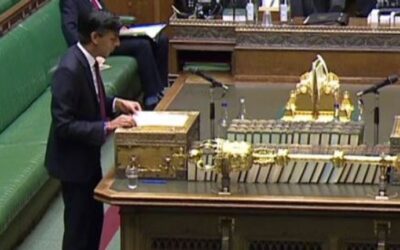The Post Office has said it will not oppose attempts to overturn the convictions of 44 sub-postmasters wrongly accused of theft and fraud because of an IT error.
The former sub-postmasters’ convictions, which were based on evidence provided by a faulty IT system, were “unsafe”, the Post Office said today.
It has now confirmed it will not block the 44 cases being sent to the Court of Appeal, which means all convictions will be quashed.
Hundreds of sub-postmasters were wrongly accused of theft, fraud and false accounting after the Horizon IT system was introduced to Post Office branches across the country between 2000 and 2002.
It incorrectly showed cash shortfalls, which resulted in many of the postmasters involved being sacked or even put in prison.
Advertisement
The scandal over the Horizon system has spanned a decade, costing millions of pounds in countless court cases.
It was not until December last year that a High Court ruling exposed the system’s failings. The court concluded that a number of “bugs, errors and defects” had caused “discrepancies” in sub-postmasters’ branch accounts.
More from UK
Depression, bankruptcy and jail: Why we sued the Post Office
Today’s decision has been described by lawyers Neil Hudgell and Tim Moloney QC, who are representing part of the group, as a “landmark moment”.
Solicitor Mr Hudgell said: “For the Post Office to concede defeat and not oppose these cases is a landmark moment, not only for these individuals, but in time, potentially hundreds of others.
“The door to justice has been opened. We are today obviously delighted for the people we represent. Clearing their names has been their driving goal from day one, as their reputations and livelihoods were so unfairly destroyed.”
Tim Parker, chairman of the Post Office, said in a statement: “I am sincerely sorry on behalf of the Post Office for historical failings which seriously affected some postmasters.
“Post Office is resetting its relationship with postmasters with reforms that prevent such past events ever happening again.”
In December last year, the Post Office agreed to pay nearly £58m to settle a civil claim brought by 550 sub-postmasters, which kickstarted the criminal appeals process.
Forty-seven convictions brought under Horizon evidence were referred to the Court of Appeal by the English Criminal Cases Review Commission. Today’s decision relates to 44 of those 47.
In May, the Post Office launched a scheme to provide redress to current and former postmasters who were not part of the litigation settlement but who believe they were adversely affected by earlier versions of the Horizon computer system.
The Horizon system is still being used in all 11,500 Post Office branches in the UK.









